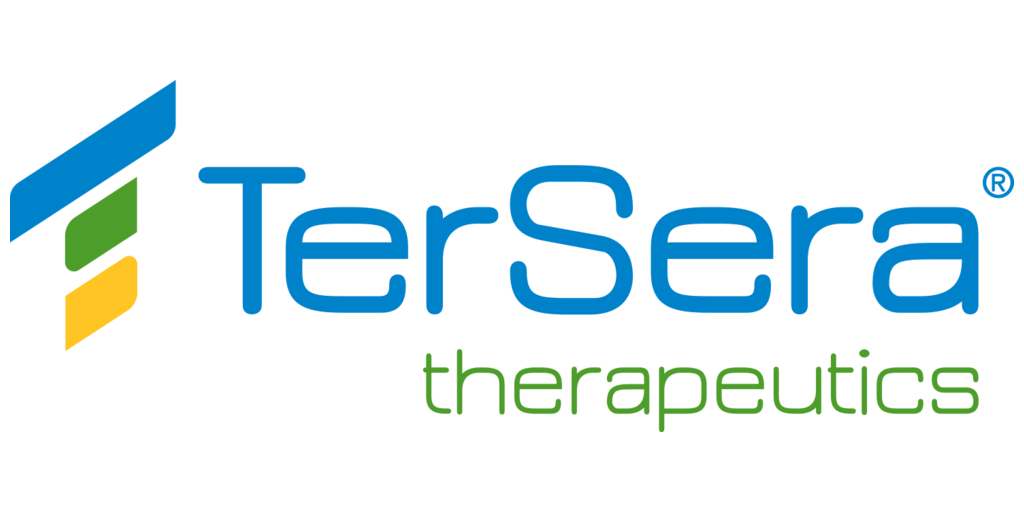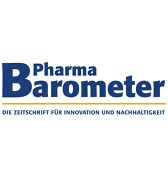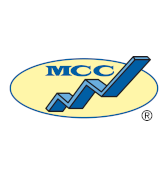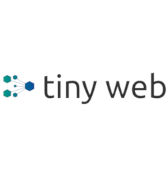DEERFIELD, Ill.–(BUSINESS WIRE)–TerSera Therapeutics LLC, a biopharmaceutical company with a focus in oncology, rare disease, and non-opioid pain management, announced today that its collaborative research on intrathecal ziconotide (PRIALT®) prescribing patterns has been accepted for presentation at the 7th Annual Meeting of the American Society of Pain and Neuroscience (ASPN) taking place July 17-20, 2025, in Miami, Florida. The poster will be presented by the primary author, Tolga Suvar, M.D., Assistant Professor, Department of Anesthesiology and Pain Medicine, and Attending Physician at Rush University Pain Center in Chicago, IL. A copy of the poster is available here.
The abstract, titled “Real-world Treatment Patterns of Intrathecal Ziconotide”, highlights a retrospective, non-interventional study conducted in partnership with Pentec Health, Inc., and other clinical collaborators. The study analyzed real-world data from over 1,000 patients treated with ziconotide between 2017 and 2024, using dispensing and claims records from Pentec, a leading provider of specialty infusion pharmacy and complex in-home clinical services. Evolution of prescribing patterns was analyzed over time and compared with the recommendations for ziconotide in the Polyanalgesic Consensus Conference (PACC) guidelines.
Key findings from the study1 include:
- Shift Toward Monotherapy Use: Use of ziconotide as monotherapy increased from 36.0% in 2017–2018 to 63.1% in 2023–2024, reflecting growing adoption of guideline-aligned prescribing of ziconotide.
- Lower Starting Doses: The proportion of patients initiated on lower ziconotide doses (<0.5 mcg/day) rose from 3.4% to 20.3% over the study period, indicating a trend toward more conservative initial dosing strategies.
- Increased Use of Patient-Controlled Analgesia (PCA): The use of basal rate with PCA nearly doubled, from 23.7% to 45.3% over the study period, suggesting increasing use of novel approaches to delivery of intrathecal medications.
“These findings underscore the importance of real-world evidence in shaping clinical practice,” said Dr. Suvar. “It is encouraging to see increased alignment with PACC guidelines and a growing emphasis on patient-tailored dosing strategies. Precision in dosing—based on the unique characteristics and pathologies of each patient—is essential for optimizing outcomes and minimizing risk.”
About PRIALT® (Ziconotide Intrathecal Infusion)
PRIALT is a non-opioid intrathecal analgesic indicated for the management of severe chronic pain in patients for whom intrathecal therapy is warranted and who are intolerant of or refractory to other treatments. Derived from a marine snail peptide, ziconotide acts as a selective N-type calcium channel blocker, interrupting pain signal transmission in the spinal cord. Ziconotide is administered via continuous intrathecal infusion and is not associated with the risk of addiction or respiratory depression commonly seen with opioid therapies.2
IMPORTANT SAFETY INFORMATION
|
WARNING: NEUROPSYCHIATRIC ADVERSE REACTIONS PRIALT is contraindicated in patients with a preexisting history of psychosis. Severe psychiatric symptoms and neurological impairment may occur during treatment with PRIALT. Monitor all patients frequently for evidence of cognitive impairment, hallucinations, or changes in mood or consciousness. Discontinue PRIALT therapy in the event of serious neurological or psychiatric signs or symptoms. |
Contraindications
PRIALT is contraindicated in patients with:
- A known hypersensitivity to ziconotide or any of its formulation components.
- Any other concomitant treatment or medical condition that would render intrathecal administration hazardous, such as the presence of infection at the microinfusion injection site, uncontrolled bleeding diathesis, and spinal canal obstruction that impairs circulation of cerebrospinal fluid (CSF).
- A pre-existing history of psychosis.
Warnings and Precautions
Cognitive and Neuropsychiatric Adverse Reactions
Severe psychiatric symptoms and neurological impairment may occur during treatment. Monitor all patients frequently for evidence of cognitive impairment, hallucinations, or changes in mood or consciousness. PRIALT may cause or worsen depression, with the risk of suicide in susceptible patients.
In clinical trials, 12% of patients reported hallucinations; other acute psychiatric events included paranoid reactions (3%), hostility (2%), delirium (2%), psychosis (1%), and manic reactions (0.4%).
Patients with pretreatment psychiatric disorders may be at an increased risk. Management of psychiatric complications may need to include discontinuation of PRIALT, treatment with psychotherapeutic agents and/or short-term hospitalization.
In clinical trials, cognitive adverse reactions included confusion (33%), memory impairment (22%), speech disorder (14%), aphasia (12%), thinking abnormal (8%), and amnesia (1%). Cognitive impairment may appear gradually after several weeks of treatment. Reduce the dose of PRIALT or discontinue the use of PRIALT if signs or symptoms of cognitive impairment develop, but other contributing causes must also be considered. The cognitive effects of PRIALT are generally reversible within 2 weeks after drug discontinuation. The elderly (≥65 years) are at higher risk for confusion. Concomitant use of central nervous system (CNS) depressants with PRIALT may have additive effects.
Meningitis and Other Infections
Meningitis can occur due to inadvertent contamination of the microinfusion device and other means. In clinical trials, the rate of meningitis was 3% (40 cases) in the PRIALT group using either internal or external microinfusion devices and 1% (1 case) with placebo. In patients with external microinfusion devices and catheters, meningitis occurred in 38 out of 41 patients (93%), 37 of whom received PRIALT and one who received placebo. Patients, caregivers, and healthcare providers must be particularly vigilant for the signs and symptoms of meningitis including, but not limited to, fever, headache, stiff neck, altered mental status (e.g., lethargy, confusion, disorientation), nausea or vomiting, and occasionally seizures.
Strict aseptic procedures must be used during the preparation of the PRIALT solution and refilling of the microinfusion device.
Reduced Level of Consciousness
In clinical trials, 2% of PRIALT-treated patients became unresponsive or stuporous. If reduced levels of consciousness occur, discontinue PRIALT until the event resolves, and other etiologies (e.g., meningitis) must be considered.
Elevation of Serum Creatine Kinase
In clinical trials, serum creatine kinase (CK) levels above the upper limit of normal (ULN) were reported in 40% of patients, with 11% of patients having CK levels >3 times ULN. Incidences were higher during the first 2 months of treatment. Serum CK should be monitored periodically. In the setting of new neuromuscular symptoms, evaluate patients, obtain CK measurements, and if symptoms continue and CK levels remain elevated or continue to rise, reduce the dose or discontinue the use of PRIALT.
Withdrawal From Opiates
PRIALT is not an opiate and cannot prevent or relieve the symptoms associated with the withdrawal of opiates. To avoid withdrawal syndrome when opiate withdrawal is necessary, do not abruptly reduce or withdraw opioid medications.
Driving and Operating Machinery
Use of PRIALT has been associated with cognitive impairment and decreased alertness/unresponsiveness. Caution patients against engaging in hazardous activities that require complete mental alertness or motor coordination.
Most Common Adverse Reactions
The most frequently reported adverse reactions (≥25%) in clinical trials (n=1254 PRIALT-treated patients) were dizziness, nausea, confusional state, and nystagmus. Slower titration of PRIALT may result in fewer serious adverse reactions and discontinuations for adverse reactions.
Indication
PRIALT® (ziconotide) solution, intrathecal infusion is indicated for the management of severe chronic pain in adult patients for whom intrathecal (IT) therapy is warranted, and who are intolerant of or refractory to other treatment, such as systemic analgesics, adjunctive therapies, or IT morphine.
To report suspected adverse reactions, contact the FDA at 1-800-FDA-1088 or www.FDA.gov/medwatch. You may also contact TerSera Therapeutics at 1-844-334- 4035 or medicalinformation@tersera.com.
Please see full Prescribing Information, including BOXED Warning.
About TerSera Therapeutics
TerSera Therapeutics is a biopharmaceutical company with a focus in oncology, rare disease, and non-opioid pain management. Founded in 2016, TerSera is building new cornerstones of care through its portfolio of unique therapeutics, amplifying their ability to deliver meaningful outcomes for patients. For additional information, please visit TerSera.com and follow us on LinkedIn.
About Pentec Health
Pentec Health is a leader in specialty pharmacy, infusion services, and DME distribution, committed to solving and simplifying complex care challenges to better meet patient and provider needs. Accredited by the Joint Commission and the American Nurses Credentialing Center, with distinctions in Specialty Care Nurse Fellowship, Pentec Health delivers exceptional results through unique solutions, technical expertise, and clinical collaboration. Our proven delivery models reduce administrative burdens and help improve patient outcomes. Pentec Health serves more than 11,000 patients living with complex medical conditions, with care provided nationwide by over 350 clinicians. For additional information, please visit PentecHealth.com.
References
- Suvar, T., Lindley, D., Leatherman, D., Howard, K., Lucia, R., Duran, N., Murray, M., McGlothlen, G., Dagenhart, J., Cannon, J., Sayeed, S., & Lubenow, T. (2025, July). Real-world treatment patterns of intrathecal ziconotide [Poster presentation]. American Society of Pain and Neuroscience (ASPN) 2025 Annual Meeting.
- PRIALT® (ziconotide). Prescribing information. TerSera Therapeutics LLC.
PRIALT is a registered trademark of TerSera Therapeutics LLC.
TerSera and the TerSera logo are trademarks of TerSera Therapeutics LLC.
©2025 TerSera Therapeutics LLC. All rights reserved.
Contacts
For more information:
TerSera Therapeutics:
Mark Leonard
847-651-9682
mleonard@tersera.com
Pentec Health:
Jeremy Krick
224-483-4419
jeremy.krick@pentechealth.com




















